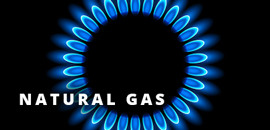PROGRESS REPORT
The University of North Texas (UNT) monitors electric, water, sewer, irrigation and natural gas consumption on a routine basis. In addition, UNT uses the Source Energy Use Index (EUIs) as an indicator to compare overall performance of the university's usage. The fiscal year 2019 sources EUI for the campus was 229 kBTU/ft2 and for fiscal year 2023 195.9 kBTU/SF or a reduction of 14.50 percent. Similar success can be seen in the overall energy consumption as compared to the overall campus growth, UNT continues to grow as a campus and has seen significant increase in water usage. Since 2010, UNT has acquired a total of one million square foot of land with a total of 7,890,113 GSF.
SMART energy metering device and Energy Monitoring infrastructure with Schneider is being implemented by UNT across campus to enable accurate calculation of cost and provide previously unavailable transparency into energy usage.
UNT has several major Mechanical, Electrical and Plumbing (MEP) renovation in progress since 2021 which will upgrade building systems and are projected to generate 5-10 percent energy savings.
Energy Conservation Measures such as retro-cx, campus lighting upgrades, building envelope repairs and window replacement are being implemented throughout the UNT campus, which is projected to save 2 to 15 percent on overall building consumption.
GOALS
UNT has set benchmark year as of 2019. UNT continues targeting a 1percent reduction each year for its energy use and energy cost index throughout campus. Since 2019, UNT has seen significant reduction on overall EUI and ECI.
| Utility | Target Year | Benchmark Year | Percentage Goal |
|---|---|---|---|
| Water | 2025 | 2019 | 1 |
| Electricity | 2025 | 2020 | 1 |
| Transportation Fuels | 2025 | 2019 | 1 |
| Natural Gas | 2025 | 2019 | 1 |
STRATEGY FOR ACHIEVING GOALS
UNT is currently working on a 10-year campus utility master plan to look over major infrastructure improvement and replacement plans. Schneider Electric signed a service agreement for UNT in fiscal year 2022 to maintain building automation system ensuring environmental conditions and conservation measures.
In addition to identifying opportunities to improve operating efficiency of building HVAC, lighting system, and exterior envelope repairs, UNT is programming to replace and upgrade all high mast exterior lighting to LED to ensure safety with improved energy savings. UNT uses EnergyCAP platform to track all utility cost by building, by vendor and by customer across campuses.
In addition, UNT uses Schneider Power Monitoring Expert system to make data from all meter across campus available in real-time to provide feedback to technicians when making improvements. UNT campus continues to work on sizing the fleet by working with departments to replace an older vehicles and assist departments in finding replacement vehicle that not only fits the need but also have better fuel economy. It is recommended to replace the fleet fuel vehicles with electric and hybrid vehicles when applicable.
IMPLEMENTATION SCHEDULE
UNT keeps performing major MEP renovation through the Capital Improvement Program and will continue every year in the five year forecast. See below for timeline and funding. UNT has installed meters on all buildings and monitors/records the energy and water consumption in all buildings across campus. On a monthly basis, this consumption is compared to baseline benchmark year for the building to find any deviations from it.
AGENCY FINANCE STRATEGY
UNT has leveraged the Capital Improvement Program to increase overall efficiency of the buildings across campus. Following is the list of upcoming improvement projects:
- Clark Hall MEP renovation - $4 million— fiscal year 2022 through fiscal year 2025— Auxiliary Funds
- Crumley Hall MEP renovation - $4.17 million— fiscal year 204 through fiscal year 2026— Auxiliary Funds
- Campus Lighting Upgrades - $3.2 million— fiscal year 2022 through fiscal year 2024— Higher Education Funds
- Music Building Jazz laboratory renovation - $4 million— fiscal year 2024— Higher Education Funds
EMPLOYEE AWARENESS PLAN
- UNT released a policy on energy use in fiscal year 2020 and will continue educating the campus through the university's marketing and communication team.
- Building representatives will be informed of potential cost saving measures through proper channel.
- Facilities management employees will be trained on energy conservation measures that they can take in their workplace.






